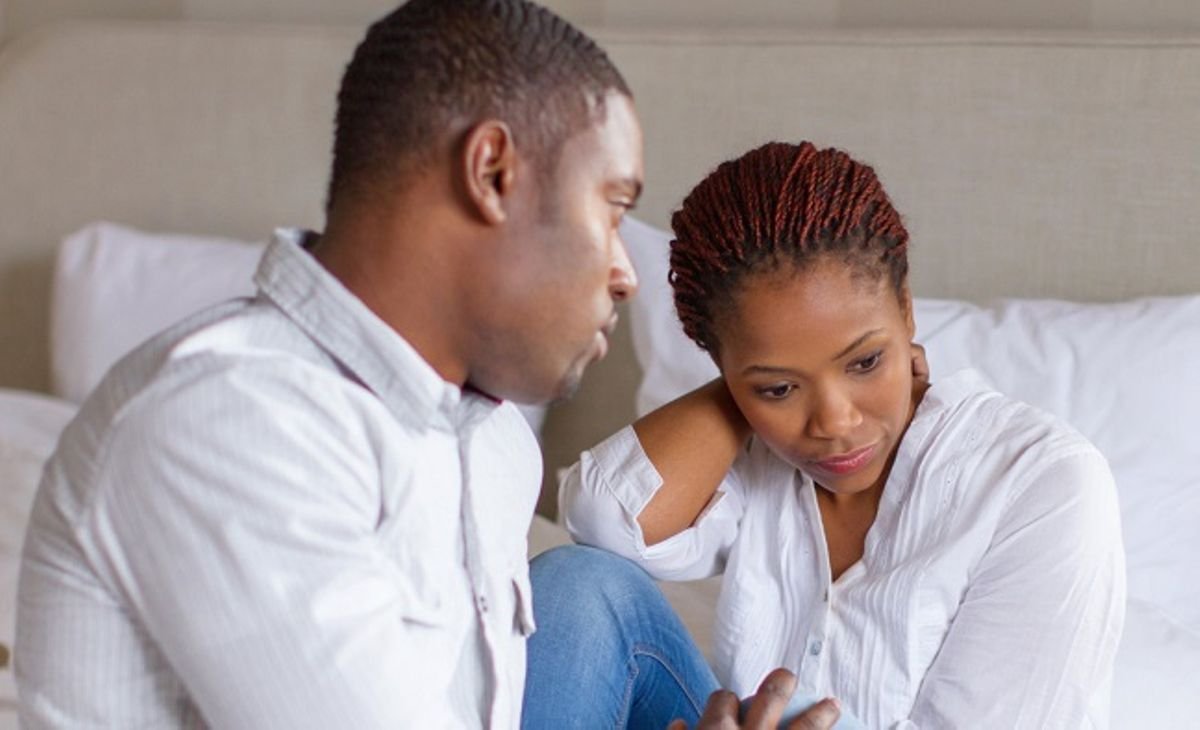Relationship
What you should expect to learn in pre-marital counselling

- Pre-marital counselling involves couples coming together for joint therapy sessions
Many times, pre-marital counselling involves couples or partners coming together for joint therapy sessions. Working with a qualified marriage counsellor or therapist, you will learn skills to help improve your relationship as a couple.
At the same time, it is not all pre-marital counselling that leads to marriage. It is possible that certain discoveries (and major red flags) could emerge during the counselling sessions, and for that reason one of you may want to discontinue the marriage process so as to avoid any future regrets.
From my experience and professional practice, I would say that no matter how painful it is to break up a relationship prior to marriage; it is still far better to do that than to break up your marriage relationship.
The marriage breakup has more serious implications than any pain that could emerge from relationship break up.
In some instances, the specific topics to be explored and skills to be developed in your pre-marital counselling sessions will depend on your needs as a couple.
Despite this, I would give you all the topics and skills to expect your counsellor to take you through in order to have a happy and lasting relationship.
Even if you are not considering pre-marital counselling at the moment, you can still benefit from these skills and topics. They are also an excellent way to create depth in your conversations and build a solid healthy foundation in the early stages of your relationship.
Not in any specific order, I would like you to take note of these important skills and lessons you will learn in your sessions: 1 understanding the concept of marriage, 2 building a strong foundation for your marriage, 3 examining your expectations leading to your marriage, 4 undergoing medical tests and sometimes mental health assessment, 5 resolving conflicts together, 6 communicating openly and effectively, 7 taking decisions as a couple, 8. building a strong Christian home (if you’re Christians), 9 building transparency and trust, 10 knowing yourselves: your strengths and weaknesses—and how to improve them, 11 building commitment towards the marriage and each other, 12 accepting your unique roles and responsibilities in your marriage, 13 planning your future together, 14 sexual intimacy in marriage, 15 bearing and raising children, 16 understanding the concept of love, 17 the role of love languages in experiencing marital happiness, 18 managing your home finances, 19 defining your beliefs and values, 20 adjustments in marriage, 21 balancing love, work, and family life, 22 relating with your in-laws and third parties, 23 creating your unique marriage and family rituals, 24 engaging married couples to learn from them, 25 understanding divorce and what causes it, 26 Christian view on divorce, 27 preparing for your marriage ceremony, 28 planning for your honeymoon and how to maximise it, and finally, 29 making your first year of marriage count.
To be continued …
Source: Excerpts from ‘Preparing for a Happy and Fulfilling Marriage’ Book by REV. COUNSELOR PRINCE OFFEI (Psychotherapist and Marriage Therapist). https://counselorprinceass.wixsite.com/edu-counseling-psych
https://princeoffei22.wixsite. com/website-psychologist
https://princeoffei22.wixsite. com/website
COUNSELOR PRINCE & ASSOCIATES CONSULT (CPAC COUNSELLOR TRAINING INSTITUTE)
Relationship
7 things Easter story teaches about marriage, relationships

This time of the year, we reflect quite a bit on the Easter story—the story of Christ’s betrayal, His sacrifice, His death, and ultimately, the Resurrection that changed the course of history and mankind’s relationship with the Creator.
But what does this have to do with marriage or relationships?
If marriage or relationships were meant to reflect the image of God, then there is no better example than Christ, the living embodiment of God’s love.
Through His sacrifice, He showed that love for each other and even for Him was not enough.
Here are seven things we can learn about marriage or relationships from Easter.
1. Betrayal can come from those we love and trust the most.
Jesus knew this all too well. Judas-one of the 12, the few in Jesus’ inner circle—betrayed Him by turning Him in to the chief priests.
Betrayal hurts. When it comes from someone we love and trust, it cuts all the deeper. And some of your deepest pain will likely come from your spouse or the person closest to you.
No marriage or relationship is immune. But it is your response to the offense has to reflect the faith and trust we have in Christ.
2. We are not above betraying the ones we love
Peter was passionate about his relationship with Christ. When Jesus told Peter he would disown Him three times before the rooster crowed, Peter just could not fathom it. “Even if I must die with you, I will not deny you!” Peter told Him. Yet, before the night had ended, Peter “wept bitterly” after he denied His Savior not once, but three times (Matthew 26:34-75).
Matthew 26:41 tells us “The spirit indeed is willing. Sometimes it is unintentional, words often rush out before my brain can catch up. Other times, the words that cut deep leave your lips without fully assessing the damage they will cause. None of us are above hurting our spouse or friends, no matter how much we try.
3. Others won’t believe your marriage/ relationship can be saved
As they gazed upon the suffering Christ, the chief priests mocked Him. “He saved others; he cannot save himself,” they said. “Let the Christ, the King of Israel, come down now from the cross that we may see and believe” (Mark 15:31- 32). The sad irony of their words is that because they refused to believe, they would never see their own salvation on that cross.
Most cultures are a brutal place to try to save a dying marriage. Not only do an increasing number of people not believe in the lasting power of marriage, many will gladly take a front seat to watch your marriage die. They will mock you and your spouse and say divorce is a better option.
Protect your relationship by surrounding yourself with people who encourage your marriage rather than dragging it down.
4. Marriage/relationship takes sacrifice.
Jesus knew what was coming. He prayed in Gethsemane, “My father, if it is possible, may this cup be taken from me. Yet not as I will, but as you will” (Matthew 26:39). Later, before He was nailed to the cross, “they offered him wine to drink, mixed with gall, but when he tasted it, he would not drink it” (Matthew 27:34). The wine concoction offered to Jesus was one typically offered to slightly ease the pain of those condemned to death. Jesus refused to numb even a fraction of the sacrifice He was about to make.
It sometimes seems like a no-brainer that we would give our lives for our spouses. But what about in the day to day? Are you willing to sacrifice your comfort, your preferences, even being right for your spouse?
On a much smaller level, sacrificing yourself for your spouse is putting their best interests above your own through a series of choices that can seem insignificant.
5. Marriage/relationship takes forgiveness.
Jesus’ sacrifice guaranteed God’s forgiveness for those who love Him. Even through the pain of the cross, He called out on behalf of those who crucified Him. “Jesus said, ‘Father, forgive them, for they know not what they do’” (Luke 23:34).
Forgiveness is not just something we have been given, it is also something we, as followers of Christ, are told to do. In Colossians, Paul says, “As the Lord has forgiven you, so you also must forgive” (3:13). Your spouse is going to mess up. A lot. You are too, perhaps even more. A good marriage involves a lot of asking for, giving, and receiving forgiveness.
6. Marriage/relationship takes faith
After the tomb was found empty, Jesus appeared to His disciples. Thomas was not there. And when the others told him they had seen the Lord, Thomas was skeptical.
“Unless I see in his hands the mark of the nails, and place my finger into the mark of the nails, and place my hand into his side, I will never believe.” A week later, Thomas found himself face-to-face with Jesus, who offered his hands to Thomas. “Do not disbelieve,” Jesus told him, “but believe” (John 20:24-29).
There have been times it was a struggle to find the good in your marriage or relationship. It was like trying to find a match in the darkness. Most at times you will not see things getting any better. Holding on when you want to let go takes faith. Even a little.
7. We all need a Saviour
The apostle John recorded the last words Jesus spoke on the cross to be, “It is finished” (John 19:30). Finished was His atonement for our sins. No one else could have paid the heavy debt we carried but the Son of God.
Marriage/relationship is a blessing, but make no mistake, it is hard at times. You and your spouse can not do it on your own strength and determination.
Much like the criminal hanging next to Jesus who said, “Jesus, remember me when you come into your kingdom” (Luke 23:42), you need to recognise the need for a Savior. And much like the disciples who were standing before their risen Lord, you need Him to breathe life into you (and into your marriage) with the Holy Spirit (John 20:22).
Your spouse needs Jesus as much as you do—no more, no less. Remembering this can help you view him or her differently. —familylife. com
Relationship
Tips on building and maintaining healthy relationships
When you commit to taking up a new habit, it is essential to have a clear plan of action before you begin. Start with a long-term goal and keep it S.M.A.R.T: S- Specific M-Measurable A- Achievable R-Relevant and T- Timely
Habit Stacking
Habit Stacking is exactly what it sounds like: putting two or more habits together. We recommend choosing times of the day when routines are strongest. For most people, this is usually the morning or before bed. We know day-to-day life can get a little crazy, but there are certain times when patterns are created, making them the perfect place for a positive change.
The best way to form a new habit is to tie it in with an existing one.
Baby steps
Many experts agree that significant changes require high motivation levels, which can be hard to sustain. Instead, you should start with a slight change that will eventually lead to something bigger.
You can transition to something bigger once you have successfully implemented daily habits for a designated amount of time.
Consistency
Consistency is key. To make something a habit, you need to do it every day. We have all heard the magic ‘21 day’ fix, but the fact of the matter is, it’s not one size fits all.
Celebrate success
Perhaps the most important part of habit-making is rewarding yourself. We know habits take time, but in order to not give up, you need to celebrate every win.
Find the thing you love and allow yourself to experience it once you’ve hit a milestone on your habit-forming journey. Sometimes, the results of habits are not immediately apparent. Do not give up!







